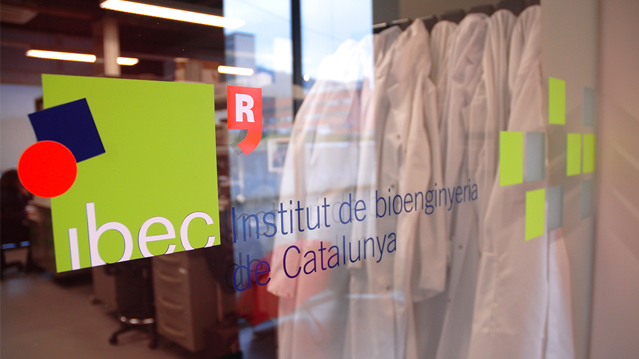
Catalan researchers help identify a drug that blocks the effects of SARS-Co-V2
Catalan Economy
06 Apr 2020
Catalan researchers at IBEC (Institute for Bioengineering of Catalonia), led by ICREA Research Professor Núria Montserrat together with international collaborators, have identified a drug capable of blocking the effects of the SARS-Co-V2 virus, the origin of the Coronavirus 2019 disease.
The treatment, which is being tested on two hundred Covid-19 patients as of April 2nd, has proven effective in mini-kidneys generated from human stem cells. Using these organoids generated by bioengineering techniques, it has been deciphered how SARS-Co-V2 interacts and infects human kidney cells.
Use of human organoids to test in an agile way
To carry out the study, published in the prestigious journal Cell, the experts have used mini-kidneys created from human stem cells generated at IBEC by Nuria Montserrat’s team.
These organoids, which have been obtained applying bioengineering techniques, reproduce the complexity of the real organ and allowed the researchers to decipher how SARS-Co-V2 interacts and infects human kidney cells. Moreover, they have validated a therapy able to reduce substantially viral load of COVID-19.
“The use of human organoids allows us to test in a very agile way the treatments that are already being used for other diseases or that are close to being validated. When time is short, these 3D structures dramatically reduce the time we would spend trying a new drug on humans”, states Núria Montserrat.
The role of the ACE2 receptor in COVID-19
Recent publications have shown that to infect a cell, coronaviruses use a protein, called S, that binds to a receptor on human cells called ACE2 (angiotensin-converting enzyme 2). Considering that this binding has been identified as a gateway for the virus to enter the body, avoiding it could constitute a possible therapeutic target.
Following this strategy, the researchers explain that they have focused on understanding the role of the receptor ACE2 in these human organoids because they mimic, in a few millimeters, almost all the characteristics of a real organ. The study provides new insights on key aspects of SARS-Co-V2 and its interactions at a cellular level, and also how the virus can infect the blood vessels and kidneys.
Source: IBEC (Institute for Bioengineering of Catalonia)
Related News and Success stories.
-
07 May 2025
See more Barcelona, named Europe’s 4th Best City in 2025Barcelona, named Europe’s 4th Best City in 2025
-
24 Apr 2025
See more 5 Reasons to Choose Barcelona-Catalonia for Your Life Sciences Expansion5 Reasons to Choose Barcelona-Catalonia for Your Life Sciences Expansion
-
14 Apr 2025
See more Catalonia takes over the presidency of the Four Motors for EuropeCatalonia takes over the presidency of the Four Motors for Europe
-
09 Apr 2025
See more Catalonia will invest €400 million in InnoFAB, a center for advanced semiconductor developmentCatalonia will invest €400 million in InnoFAB, a center for advanced semiconductor development

